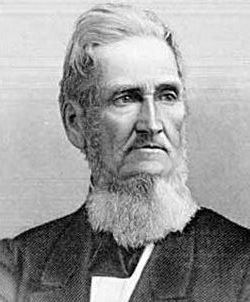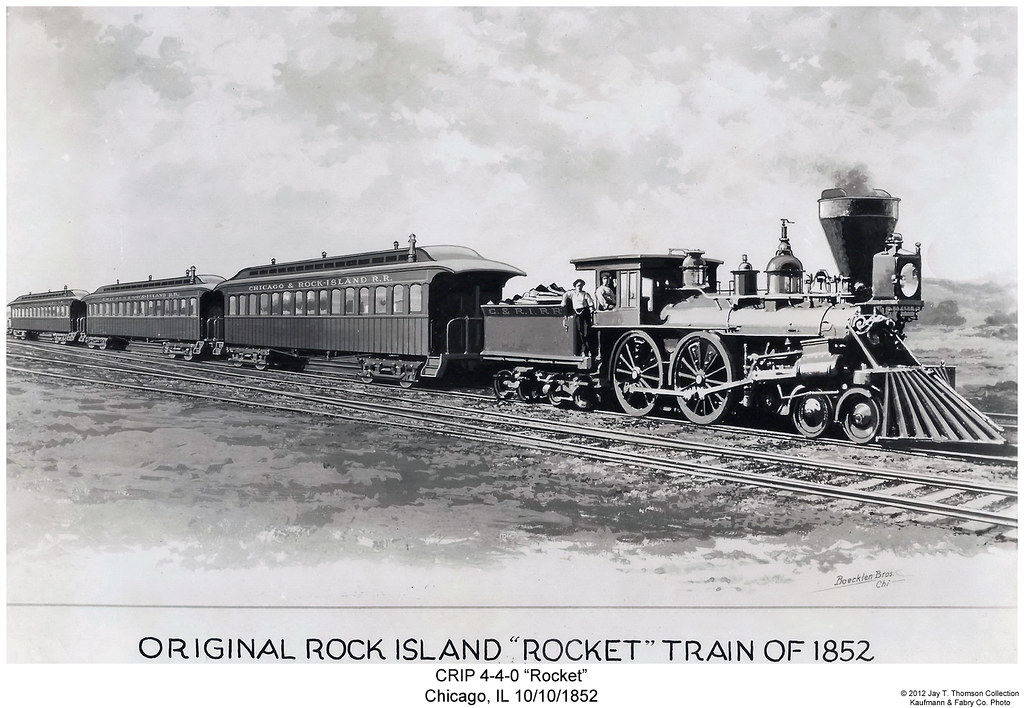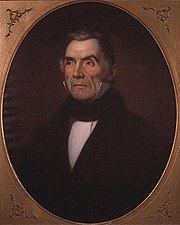Hey, sorry for the WAY TOO LONG hiatus from this TL that is near and dear to my heart. A LOT has happened this past year, and not a lot of it good. I can't even really afford to type these days but it's one of the few things that has kept me sane. So with that bit of darkness out of the way, let's get on with the darkness of the this TL's American Civil War.
----------
Part 3: Ohio saves the Union
With the 'Border Bout War' kicking off, the Union needed lots of troops in Kentucky, and fast. There were no railroads connecting Ohio to the Atlantic states, but Ohio had the most extensive and sophisticated rail system for miles around. It would be up to the brave men of Ohio to help deliver a crucial victory for President Taylor and the Union.
Reuben Wood, Governor of Ohio
Ohio was a state that was full of the right people and the right infrastructure at the right time. Ohio had some of the earliest railroads in America, with lines connecting Cleveland, Sandusky, and Columbus to Cincinnati in the south of the state. And though the world didn’t know it yet, Ohio was home to what would be key figures in the Union Army. The governor of Ohio, one Reuben Wood, was an anti-slavery Democrat who rather immediately took up President Taylor’s call to arms. However, he needed a commander for Ohio’s militia and could think of no better candidate than George B. McClellan.
George B. McClellan, Commander of the Ohio Militia
McClellan was a graduate of West Point and had served honourably in the Pan-American War in the Mexican theatre. He was also something of a railroad and technology enthusiast, having just published a manual on bayonet tactics he had translated from French. His knowledge of “big war science” and his experience with railroads suggested that he would excel at military logistics and be just the man Ohio needed. McClellan accepted and immediately set to work.
On April 27, 1852, just four days after assuming command in Ohio, McClellan wrote a letter to General Scott that presented the first proposal for a strategy for the war. It contained two alternatives, each envisioning a prominent role for himself as commander. The first would use 80,000 men to invade Virginia through the Kanawha Valley toward Richmond. The second would use the same force to drive south instead, crossing the Ohio River into Kentucky and Tennessee. Scott had initially rejected both plans as logistically unfeasible, preferring instead to use the troops on a river-based expedition to control the Mississippi River and split the Confederacy. However, he came under immense pressure from his fellow generals and even President Taylor who were eager for a win after the embarrassment at Big Bethel. Scott ultimately acquiesced to the latter plan, which could still be further enacted upon as a way of controlling the Mississippi. With fresh soldiers from training camps across the state funneled into Cincinnati, McClellan made ready to cross into Kentucky.
Cincinnati, Ohio as seen from Covington, Kentucky in 1852
The aim of the newly minted “Cincinnati Expedition” was to completely secure Kentucky for the Union by occupying and fortifying the ‘heart’ of the State; Lexington, the Capital Frankfort, and Louisville which sat on the banks of the Ohio River. The aim was also to capture the railroad currently in development between Lexington and Louisville. Victory here would be a major strategic and political success for the Union.
Local Confederate militia commanders in Covington, Kentucky had expected a Union assault and had built and fortified defensive positions. However, they were woefully unprepared for the sheer number of Union troops that had amassed so quickly. Though reinforcements from Lexington and the east were on their way, they were not close enough to stop the Union’s easy victory in the Battle of Covington. The real battle would take between McClellan’s forces and Confederate reinforcements at the Battle of Williamstown. Again, the Confederates were not prepared for the sheer numerical advantage that the Union had and how quickly they had amassed it; it would clearly illustrate the importance of railroads in the war.
A sign of the changing times, and of things to come
As a result of the decisive Battle of Williamstown, Confederate forces could not withstand the onslaught. Kentucky already had many Unionists, especially in Louisville. This expedition from Ohio, which also brought tens of thousands of troops to keep Kentucky Unionist and to threaten Tennessee, had secured an incredibly important victory for the USA early on the war and propelled General McClellan to national fame. Though resistance would continue in the east and south, Kentucky would remain firmly with the Union until the end of the war.








